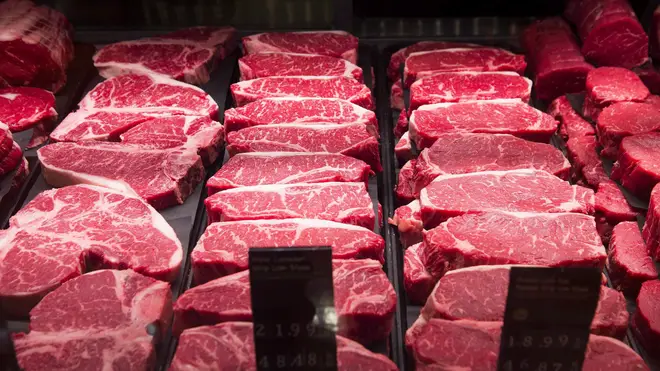
Ali Miraj 6pm - 9pm
6 January 2020, 06:00

A dip in nutrition levels in plants and fish have made it more important than ever to eat red meat for health reasons, a professor of cardiovascular pharmacology has claimed.
As more people turn to a meat-free died, and with the increasing popularity of a vegan lifestyle, advocates of red meat will use the UK's biggest farming conference to begin a fightback against veganism.
Professor Alice Stanton, who teaches cardiovascular pharmacology at the Royal College of Surgeons in Ireland, will tell the Oxford Farming Conference key nutrients in some fruits, vegetables and grains have dipped by up to 50% over 50 years.
The professor is expected to say this is a result of farmers trying to meet demands for cheap foods.
“For plant-based foods, there’s been drops in vitamins and key electrolytes by up to 50% over the past 50 years because of the genetic selection for large volume and uniformity of shape and appearance, so the things look good on the shelves. There hasn’t been selection for nutrient content,” she told the Observer newspaper.
“Absolutely, we need to address greenhouse gas emissions. But I’m concerned about the dramatic reduction in red meat consumption being regarded as the solution,” she said. Eating red meat in moderation – “twice to four times a week” – was “protective against heart attacks, strokes and cancer”, while nutrients in red meat were vital for children in the first three years of life, she added.
“I’m not against vegetarianism or veganism,” Stanton said. “It is possible to have a balanced diet with vegetarianism. It’s a little bit more challenging but still possible with veganism. However, it requires a lot of knowledge and effort, which doesn’t happen in the majority of the population. People don’t have time to invest in getting a really balanced diet through a range of plant-based foods.”
The growth of alternative diets saw a drop of around £185 million in sales of red meat in 2019 with figures showing hundreds of thousands of people in the UK gave up meat for Veganuary.
According to polls quoted by the Vegan Society, the number of vegans in Britain has quadrupled since 2014, increasing from 150,000 to 600,000.
Orders for vegan meals have increased by 388% between 2016 and 2018, making them the UK’s fastest-growing takeaway choice.
A number of high street brands launched vegan versions of popular products in 2019, Greggs famously launched their vegan sausage roll, while McDonald's announced their first vegan meal.
Anna Jones, a forestry specialist at Greenpeace UK, said: “Professor Stanton is right to point out that a global shift in diet from meat to plant-based food won’t be easy and isn’t a solution on its own, but, given the impact of the meat industry on the climate, it’s absolutely necessary.”
Nutritionist Becky Graham told Sky News while there are health benefits, a meat-free diet cannot provide everything a human is used to.
She said: "It's down to the individual - but if you decide not to eat meat you can find the nutrients to replace it. However, looking at following a vegan diet long term, there are certain nutrients that definitely would be missing out on.
"Key things like iron, B12, perhaps vitamin D as well. All those are found in animal products but not in plant products to the same extent - or at all to be honest."